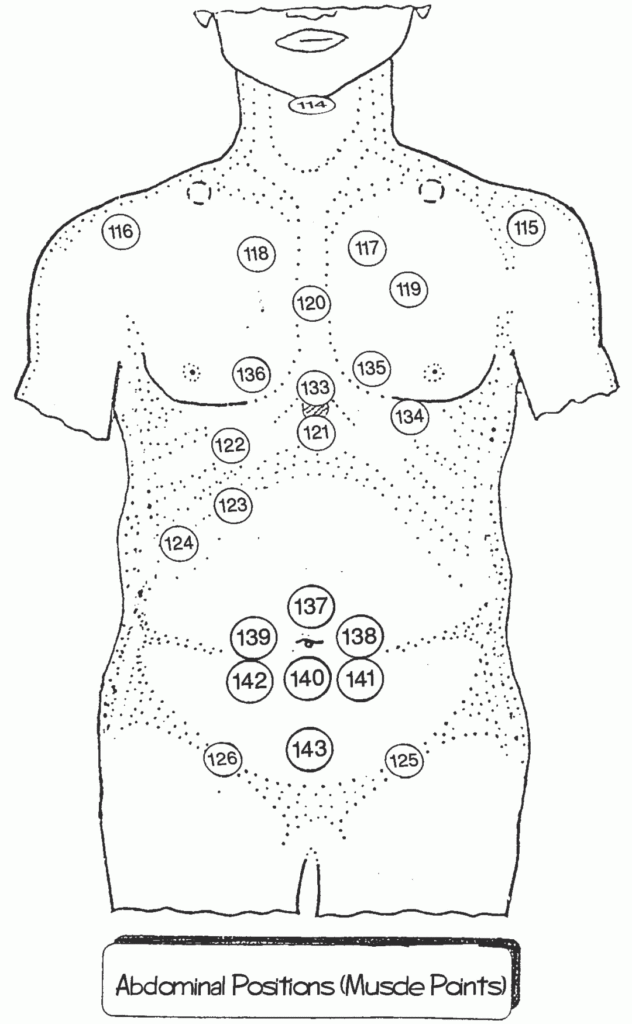
How to Locate Hijama / Cupping Points on the Front of the Body Hijama
Dark red to pink. Whenever you have darker tones on the cupping marks chart, that shows you have a mild to moderate blood stagnation. These marks will be there for a longer amount of time, up to 12 days in some cases. This can appear especially in the case of a user that doesn't perform cupping therapy that often.

What Are Cupping Marks Color Meaning Are They Painless
Cupping Marks Chart For Colors. The following are some typical interpretations of colors connected to cupping marks: Light to Medium Pink Color. A common outcome of cupping marks lies within the range of pinkish colors which indicate a healthy body with little to no toxins depending on the severity of the pink color. In many cases, the color reaches its most vivid in four to five days and.
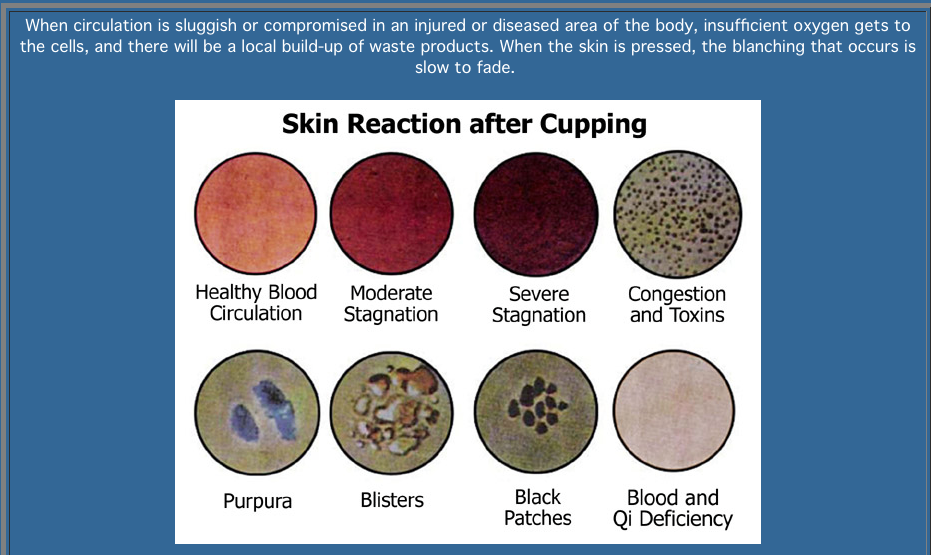
Cupping Points Diagram
Cupping pulls stagnation out of the deep tissue and brings it to the skins surface, usually in the form of a discoloration. The most common and unfortunate misconception about the marks left behind from cupping is that the therapy can result in a bruise. These discolorations are not bruises. A bruise appears on the skin due to an impact trauma. An injury causes capillaries to burst, trapping.
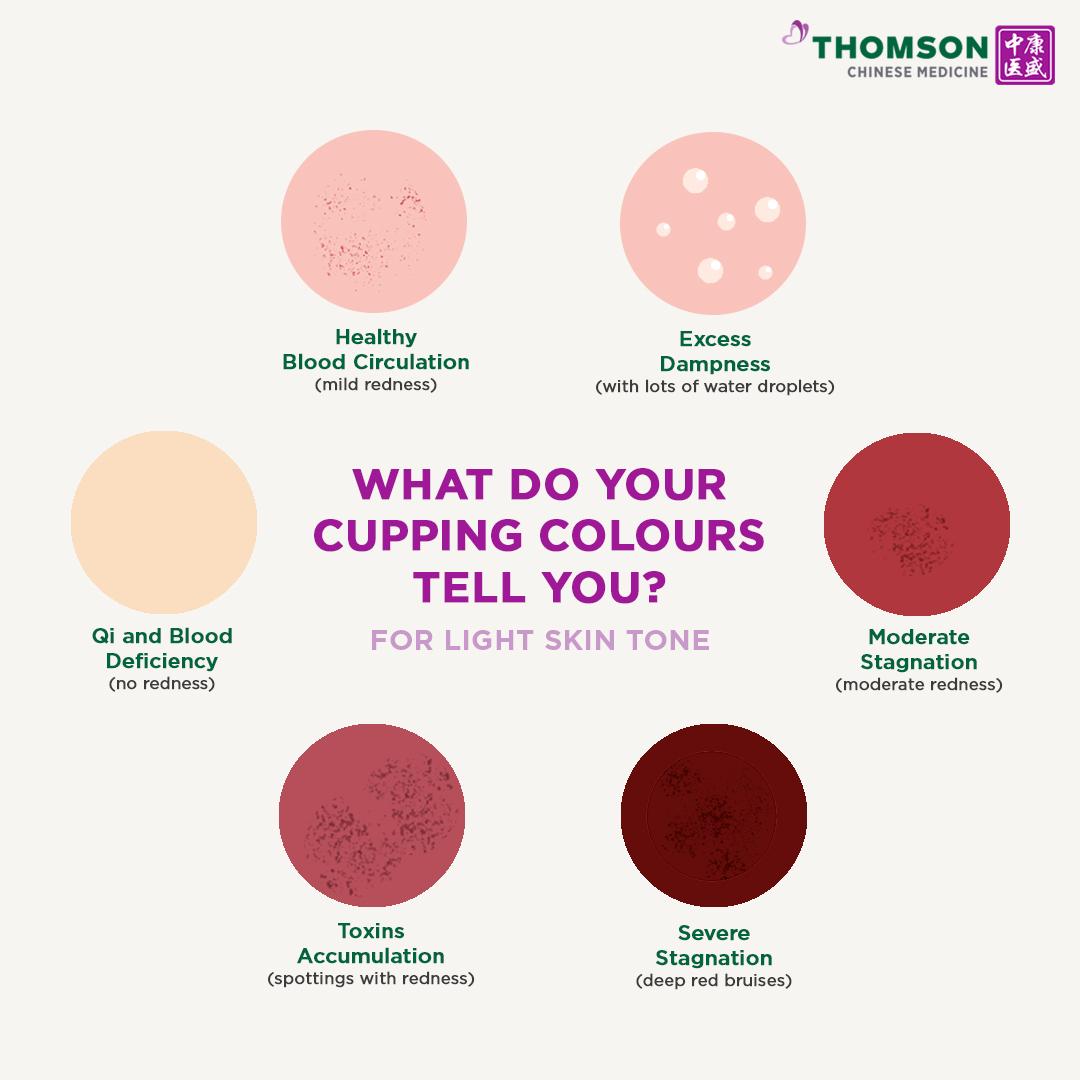
What Do Your Cupping Colours Tell You? Thomson Chinese Medicine
Cupping marks with an intense dark color usually means significant blood stagnation. Light red discoloration is most frequently seen in healthy patients. In my clinical experience, many factors, such as the duration and intensity of cupping, contribute to the skin color changes after cupping therapy. Longer duration and stronger suction usually.

All About Cupping Marks · Simply Massage
Geeks only! Science facts & health benefits behind cupping marks explained with Kate Moore.

How does cupping therapy help for detoxification?
These cupping marks are discoloration of the skin due to broken blood vessels just beneath the skin, much like a bruise. This indicates the level of blood and Qi stagnation, toxin accumulation, or dampness accumulation in your body. The color and pattern of the marks reflect the level of stagnation in that area.

Home Cupping Therapy
After a cupping therapy session, patients may notice residual ecchymosis on the skin, commonly referred to as cupping marks. These marks result from the suction applied during cupping and manifest as circular or oval-shaped areas of skin discoloration. The color of the marks may vary, ranging from light red or pink to dark purple, depending on.

Massage Cupping Therapy SunRise Healing Center
Cupping is a practice used in traditional medicine in several parts of the world, including China and the Middle East. It involves creating suction on the skin using a glass, ceramic, bamboo, or plastic cup.. Cupping leaves temporary marks on the skin. The origin of these marks should be explained to health care providers so that they won.

Cupping Therapy for better health
Cupping will allow the body to deal with the stagnation more effectively and promote health to the area. A pale or white mark indicates that an area has a lack of function and probably isn't performing properly. Using cupping techniques, a therapist can help restore better function to the area. Cupping that leaves a bright fresh red color.
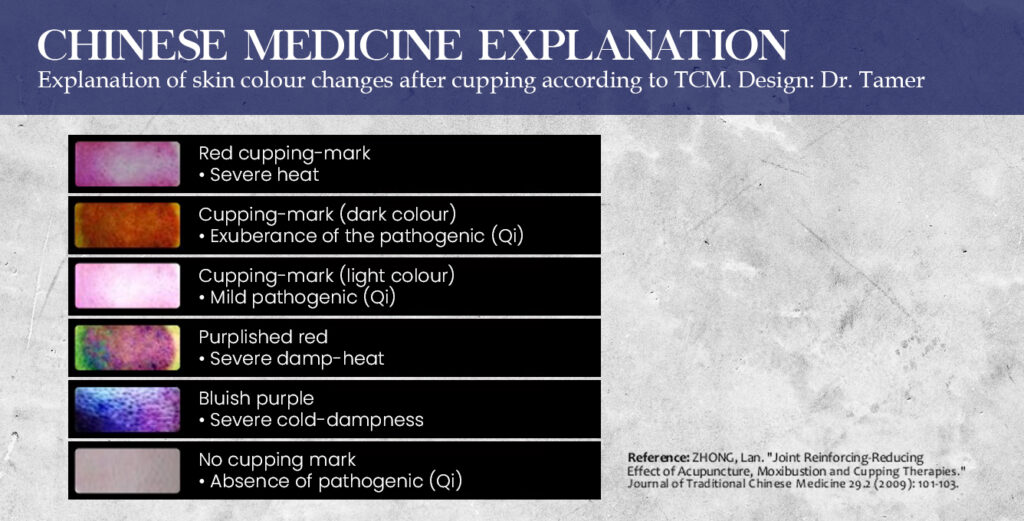
What Tell You the Colour of Cupping Marks About Your Body
Here are a few home remedies that may help reduce the visibility of cupping therapy marks: Apply cold compresses: Place a cold compress or ice pack on the marked areas for a few minutes at a time. This can help reduce swelling and discoloration. Use topical creams: Apply creams or oils containing vitamin K or arnica to the marks.

Cupping Therapy A Healing Point Acu Center
To understand what the cupping marks are telling you about your body, you must base it off the color of the first day. Shades of Red: Active Circulation and Energy. Vibrate shades of red often indicate good blood circulation and a healthy flow of energy in the treated area. This color suggests that the therapy has successfully increased blood.

What Do Dark Cupping Marks Mean WHATDOSH
Cupping has gained popularity in recent years for its potential health benefits and its distinctive marks.

Hijama Points , Cupping points on the body alternative medicine http
The most common side effect of cupping therapy is the presence of cupping marks and the discoloration of the skin. The bruising of the skin is regarded as a part of the therapy session in many cases. There are two common explanations for the marks that are left behind after the cupping therapy. The more obvious one lies in the blood circulation.
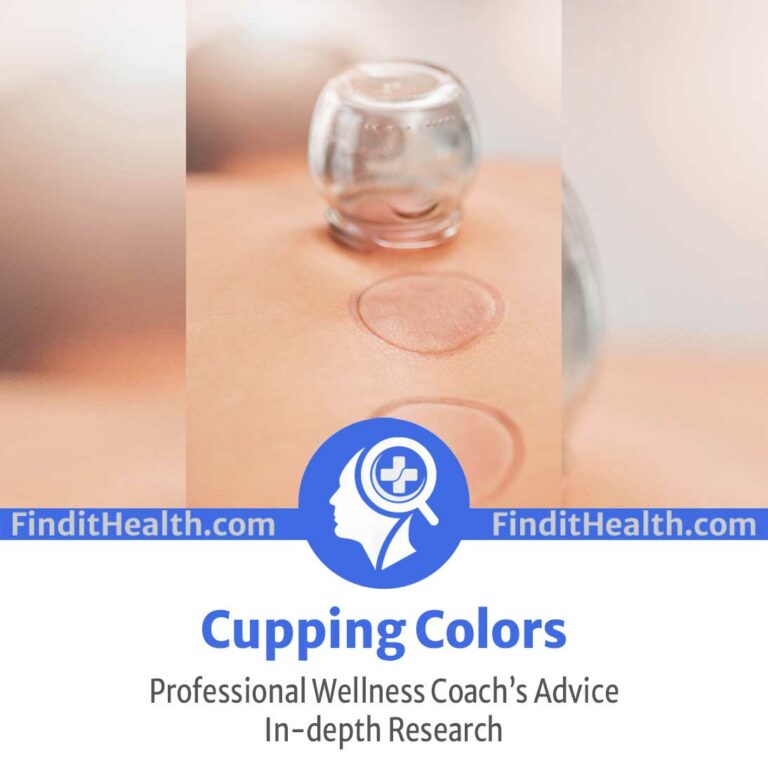
Cupping Colors (Marks Chart) — (Health Coach’s Advice)
Cupping Cupping Marks can le and Explanations ve skin marks, ne of the commonest side effects of CT. Skin mark is usually round red to purple in color. the and pertinent the factors cupping therapy studies affecting done (Hijama) in these this field. skin changes and standardize its The article after also cupping practice discusses therapy.
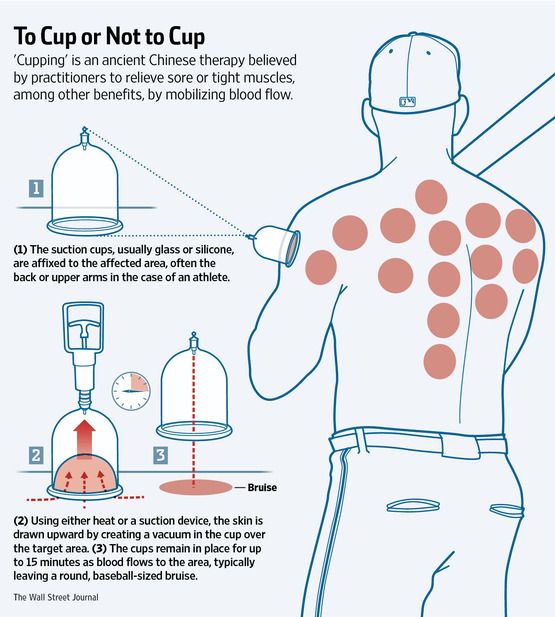
Cupping Types [for low back pain] ELAINE CHAN State Certified
Cupping therapy is an ancient healing method that may ease back pain, neck pain, headaches and other issues. It uses suction to pull on your skin and increase blood flow to the affected area. Cupping causes bruising and can lead to skin infection. There's mixed evidence on the benefits of cupping, but the treatment risks are generally low.

What is Cupping Therapy? A Closer Look
But fret not! It is common for cupping to leave distinctive small, circular bruises on the areas where the cups were applied and it is usually painless. These cupping marks are discoloration of the skin due to broken blood vessels just beneath the skin, much like a bruise. This indicates the level of blood and Qi stagnation, toxin accumulation.